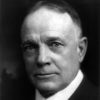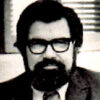But we should not think that we ought not to learn literature because Mercury is said to be its inventor, nor that because the pagans dedicated temples to Justice and Virtue and adored in stones what should be performed in the heart, we should therefore avoid justice and virtue. Rather, every good and true Christian should understand that wherever he may find truth, it is his Lord’s.
[Neque enim et litteras discere non debuimus quia earum repertorem dicunt esse Mercurium, aut quia iustitiae virtutique templa dedicarunt, et quae corde gestanda sunt in lapidibus adorare maluerunt, propterea nobis iustitia virtusque fugienda est. Immo vero quisquis bonus verusque Christianus est, Domini sui esse intellegat.]
Augustine of Hippo (354-430) Christian church father, philosopher, saint [b. Aurelius Augustinus]
On Christian Doctrine [De Doctrina Christiana], Book 2, ch. 18 / § 28 (2.18.28) (AD 397) [tr. Robertson (1958)]
(Source)
(Source (Latin)). Alternate translations:
For we ought not to refuse to learn letters because they say that Mercury discovered them; nor because they have dedicated temples to Justice and Virtue, and prefer to worship in the form of stones things that ought to have their place in the heart, ought we on that account to forsake justice and virtue. Nay, but let every good and true Christian understand that wherever truth may be found, it belongs to his Master.
[tr. Shaw (1858)]
We were not wrong to learn the alphabet just because they say Mercury was its patron, nor should we avoid justice and virtue just because they dedicated temples to justice and virtue and preferred to honour these values not in their minds, but in the form of stones. A person who is a good and a true Christian should realize that truth belongs to his Lord, wherever it is found.
[tr. Green (1995)]
Quotations about:
Christian
Note not all quotations have been tagged, so Search may find additional quotes on this topic.
You know not, will not know, what Christians are;
Their pride is to be Christians, never men;
Ay, even that which since their Founder’s time
Hath tinged their superstition with a touch
Of pure humanity, is prized by them
Never because ’tis human, but because
‘Twas preached and practised by their Jesus Christ.
‘Tis well for them he was so rare a man;
Well that they take his virtues upon trust;
But what to them the virtues of their Christ?
‘Tis was not his virtues, but his name alone
They seek to spread, that it may dominate
And cloud the names of other noble men;
Ay, ’tis the name, the name of Christ alone
Your Christian cares about.[Du kennst die Christen nicht, willst sie nicht kennen.
Ihr Stolz ist: Christen sein; nicht Menschen. Denn
Selbst das, was, noch von ihrem Stifter her,
Mit Menschlichkeit den Aberglauben würzt,
Das lieben sie, nicht weil es menschlich ist:
Weil’s Christus lehrt; weil’s Christus hat getan.—
Wohl ihnen, daß er so ein guter Mensch
Noch war! Wohl ihnen, daß sie seine Tugend
Auf Treu und Glaube nehmen können!—Doch
Was Tugend?—Seine Tugend nicht; sein Name
Soll überall verbreitet werden; soll
Die Namen aller guten Menschen schänden,
Verschlingen. Um den Namen, um den Namen
Ist ihnen nur zu tun.]Gotthold Lessing (1729-1781) German playwright, philosopher, dramaturg, writer
Nathan the Wise [Nathan der Weise], Act 2, sc. 1 [Sittah] (1779) [tr. Maxwell (1917)]
(Source)
(Source (German)). Alternate translations:
You do not know the christians.
You will not know them. 'Tis this people's pride
not to be men, but to be christians. Even
what of humane their founder felt, and taught,
and left to savour their fond superstition,
they value not because it is humane,
lovely, and good for man; they only prize it
because 'twas Christ who taught it, Christ who did it.
'Tis well for them he was so good a man:
well that they take his goodness all for granted,
and in his virtues put their trust. His virtues --
'Tis not his virtues, but his name alone
they wish to thrust upon us. -- 'Tis his name
which they desire should overspread the world,
should swallow up the name of all good men,
and put the best to shame. Tis his mere name
they care for --
[tr. Taylor (1790)]
Thou dost not know the Christians, wilt not know them.
Their pride, that is: the Christian; not the Man.
For even what, still coming from their founder,
With human worth, imbibes their superstition,
Is not adored by them, because 'tis human:
No, but because Christ taught, Christ acted so. --
'Tis well for them, that yet so good a man
He was! 'Tis well for them, that they may take
His virtue granted, and on faith! -- But what
Of virtue! -- Not his Virtue; no, his Name
They wish to spread all o'er the world; his name
Shall stigmatize the names of all good men,
And swallow them. The name, and but the name, --
That's what they cherish.
[tr. Reich (1860)]
You do not, will not, know the Christian race.
It is their pride not to be men, but Christians.
The virtue which their founder felt and taught,
The charity He mingled with their creed,
Is valued, not because it is humane,
And good, and lovely, but for this alone,
That it was Christ who taught it, Christ who did it.
;Tis well for them He was so good a man.
Well that they take His goodness all on trust.
And in His virtues put their faith. His virtues!
'Tis not His virtues, but His name alone
They wish to thrust upon us -- His mere name,
Which they desire should overspread the world,
Should swallow up the name of all good men.
And put the rest to shame. 'Tis for His name
Alone they care.
[tr. Boylan (1878)]
Thou knowest not the christians, will'st not know them:
Their pride is to be Christians, and not men.
For even that which from their Founder's time
Seasons their superstition with humanity, --
That love they not because 'tis human; -- no,
Because Christ taught it and Christ practised it.
'Tis well for them that he was really such
A good man! Well, that they can take on trust
His virtue! Yet what speak I of his virtue?
'Tis not his virtue, 'tis his name alone,
That over all the earth shall spread abroad,
To put to scorn and swallow up the name
Of every other good man. 'Tis the name,
The name alone they care for, they.
[tr. Corbett (1883)]
Thou knowest the Christians not -- wilt not know them.
Their pride is to be Christians -- not men. For
Even that humanity, which by their Founder
Was rooted in their superstition, that love they
Not because it is humane, but because
He taught it -- because so Christ hath done.
Tis well for them He was indeed so
Good a man. 'Tis well for them that they
His virtue can accept on faith, and on belief.
His virtue say I? Not His virtue. His name alone
Shall over all be spread, and shall the name
Of all good men shame and destroy. The name --
And nothing but the name -- is their concern.
[tr. Jacks (1894)]
You do not know the Christians, don’t want to know them. Their pride is to be Christians, not men. Because even what leavens superstition with mitigating aspects, -- dating back to their founder -- they don’t love because it is human. (They love it) because Christ teaches it, because Christ has done it. Lucky they that such a good man existed yet! Lucky they that they can take his virtue on faith and belief! But what virtue? Not his virtue, his name is to be propagated everywhere, is to desecrate the name of all good men, devour it. For the name, for the name only, they care.
[tr. Reinhardt (1950)]
You do not know the Christians, will not know them.
Their pride is to be Christians, and not men.
For even that which from their Founder’s day
With human nature spices superstition
They don’t love for its human worth: because
Their Jesus taught it, by him it was done. --
O well for them, that he was a good man!
And well for them, that they can take his virtue
On faith! -- But what of virtue? -- It’s not that
Shall overspread the world, but just his name;
That name shall swallow all the names of men,
Put them to shame. The name, the name alone,
Is all they care for.
[tr. Morgan (1955), l. 72ff]
You don't know Christians, and you'll never know them. Their pride's not to be men, its to be Christians. Even humanity -- which from the days of their dear Lord Jesus Christ has lessened superstition -- they love, not for its human quality, but only because Christ taught it and showed it in His deeds. It is indeed a blessing that He was so good a man, a man in whose virtues they can place their entire faith! But are His virtues really theirs? No, not at all, it's not His virtues but His name that they attempt to spread throughout the world and, in so doing, cloud with slander and obliterate the names of all good men. The name alone is everything to these Christians.
[tr. Ade (1972)]
Alas, proud Christians, faint with misery,
So warped of vision in the inward sense
You trust in your backslidings! Don’t you see
That we are worms, whose insignificance
Lives but to form the angelic butterfly
That flits to judgement naked of defence?
Why do you let pretension soar so high,
Being as it were but larvae — grubs that lack
The finished form that shall be by and by?[O superbi Cristian, miseri lassi!
Che, della vista della mente infermi,
Fidanza avete ne’ ritrosi passi;
Non v’ accorgete voi, che noi siam vermi
Nati a formar l’ angelica farfalla,
Che vola alla giustizia senza schermi?
Di che l’ animo vostro in alto galla,
Poi siete quasi entomata in difetto,
Sì come verme, in cui formazion falla?]Dante Alighieri (1265-1321) Italian poet
The Divine Comedy [Divina Commedia], Book 2 “Purgatorio,” Canto 10, l. 121ff (10.121-129) (1314) [tr. Sayers (1955)]
(Source)
Criticizing prideful Christians.
(Source (Italian)). Alternate translations:
O, miserable Pride! of Blindness born!
Vile retrograde Ambition! theme of Scorn!
Can Reptiles in the dust, of dust be proud? --
Boast of their meanness, falsify their end;
From their immortal hopes at once descend.
And let a dowerless Vice their prospects cloud? --
As Reptiles, who their painted plumes display,
(Tho; crawling once in dust,) and wing their way
On Summer-buxom gales, and claim the Sky:
Thus were ye born, and thus you claim your flight
To the pure Precincts of celestial Light,
If on no fpurious Pride your hopes rely.
[tr. Boyd (1802), st. 23-24]
Christians and proud! O poor and wretched ones!
That feeble in the mind’s eye, lean your trust
Upon unstaid perverseness! Know ye not
That we are worms, yet made at last to form
The winged insect, imp’d with angel plumes
That to heaven’s justice unobstructed soars?
Why buoy ye up aloft your unfleg’d souls?
Abortive then and shapeless ye remain,
Like the untimely embryon of a worm!
[tr. Cary (1814)]
O haughty Christians! miserable, alas!
From mental sight to weakness that's allied,
Confiding in perverseness and in pride,
Perceive ye not we are but merely worms,
Born embryo of angelic butterfly,
Which, unrestrained, to justice flies on high,
Where is the object of your souring flight?
Insect, in whom defecta lone prevails,
And worm, in which the true formatiln fails.v [tr. Bannerman (1850)]
O ye proud Christians! wretched, weary ones!
Who, in the vision of the mind infirm
Confidence have in your backsliding steps,
Do ye not comprehend that we are worms,
Born to bring forth the angelic butterfly
That flieth unto judgment without screen?
Why floats aloft your spirit high in air?
Like are ye unto insects undeveloped,
Even as the worm in whom formation fails!
[tr. Longfellow (1867)]
O proud Christians, wretched and weary, who, weak in the sight of the mind, have confidence in your backward paces, do ye not perceive that we are worms, born to form the angelic butterfly which flies without screen to the judgement? In respect of what does your mind float on high, since ye are as it were defective insects, like a worm in which formative power is in default?
[tr. Butler (1885)]
Proud Christians, wretched, weary, and undone!
Who of your mental sight are so bereaved
That ye have faith in backward paths alone;
That we are worms have ye not yet perceived,
Born but to form the Angelic butterfly
That soareth up to judgment unreprieved?
Of what your spirit doth it vaunt so high?
Since ye are unformed insects at the best,
Worms as it were unfinished utterly.
[tr. Minchin (1885)]
O proud Christians, wretched weary ones, who, diseased in vision of the mind, have confidence in backward steps, are ye not aware that we are worms born to form the angelic butterfly which flies unto judgment without defence? Why doth your mind float up aloft, since ye are as it were defective insects, even as a worm in which formation fails?
[tr. Norton (1892)]
O ye proud Christians, wretched and weary, who, sick in mental vision, put trust in backward steps,
perceive ye not that we are worms, born to form the angelic butterfly that flieth to judgment without defence?
Why doth your mind soar on high, since ye are as 'twere imperfect insects, even as the grub in which full form is wanting?
[tr. Okey (1901)]
O vainglorious Christians, weary wretches who are sick in the mind's vision and put your trust in backward steps, do you not perceive that we are worms born to form the angelic butterfly that soars to judgement without defence? Why does your mind float so high, since you are as it were imperfect insects, like the worm that is undeveloped?
[tr. Sinclair (1939)]
O ye proud Christians, weary and sad of brow,
Who, tainted in the vision of the mind,
In backward steps your confidence avow,
Preceive ye not that we are worms, designed
To form the angelic butterfly, that goes
To judgment, leaving all defence behind?
Why doth your mind take such exalted pose,
Since ye, disabled, are as insects, mean
As worm which never transformation knows?
[tr. Binyon (1943)]
O you proud Christians, wretched souls and small,
who by the dim lights of your twisted minds
believe you prosper even as you fall --
can you not see that we awer works, each one
born to become the Angelic butterfly
that flies defenseless to the Judgment Throne?
what have your souls to boast of and be proud?
You are no more than insects, incomplete
as any grub until it burst the shroud.
[tr. Ciardi (1961)]
O proud Christians, wretched and weary, who, sick in mental vision, put trust in backward steps: are you not aware that we are worms, born to form the angelic butterfly that flies until judgment without defenses? Why does your mind soar up aloft, since you are as it wer imperfect insects, even as the worm in which full form is wanting?
[tr. Singleton (1973)]
O haughty Christians, wretched, sluggish souls,
all you whose inner vision is diseased,
putting your trust in things that pull you back,
do you not understand that we are worms,
each born to form the angelic butterfly,
that flies defenseless to the Final Judge?
Why do your souls’ pretensions rise so high,
since you are but defective insects still,
worms as yet imperfectly evolved?
[tr. Musa (1981)]
O proud Christians, wretched and exhausted,
Who, sick in mind, and not seeing aright,
Go confidently in the wrong direction;
Do you not perceive that we are grubs,
Born to turn into the angelic butterfly
Which flies towards justice without defence?
Why does your mind float aloft
Since you are no more than defective insects,
Like the grub which has not reached its full development?
[tr. Sisson (1981)]
O Christians, arrogant, exhausted, wretched,
Whose intellects are sick and cannot see,
Who place your confidence in backward steps,
Do you not know that we are worms and born
To form the angelic butterfly that soars,
Without defenses, to confront His judgment?
Why does your mind presume to flight when you
Are still like the imperfect grub, the worm
Before it has attained its final form?
[tr. Mandelbaum (1982)]
O proud Christians, weary wretches, who, weak in mental vision, put your faith in backward steps,
do you not perceive that we are worms born to form the angelic butterfly that flies to justice without a shield?
Why is it that your spirit floats on high, since you are like defective insects, like worms in whom formation is lacking?
[tr. Durling (2003)]
O proud Christians, weary and wretched, who, infirm in the mind’s vision, put your trust in downward steps: do you not see that we are caterpillars, born to form the angelic butterfly, that flies to judgement without defence? Why does your mind soar to the heights, since you are defective insects, even as the caterpillar is, in which the form is lacking?
[tr. Kline (2002)]
Proud Christians, wretched and — alas! — so tired,
who, feeble in your powers of mental sight,
place so much faith in your own backward tread,
do you not recognize that you are worms
born to become angelic butterflies
that fly to justice with no veil between?
Why is it that your thoughts float up so high?
You, with your faults, are little more than grubs,
chrysalides (no more!) that lack full form.
[tr. Kirkpatrick (2007)]
O vainglorious Christians, miserable wretches!
Sick in the visions engendered in your minds,
you put your trust in backward steps.
Do you not see that we are born as worms,
though able to transform into angelic butterflies
that unimpeded soar to justice?
What makes your mind rear up so high?
You are, as it were, defective creatures,
like the unformed worm, shaped from the mud.
[tr. Hollander/Hollander (2007)]
O haughty Christians, miserable and weary,
Driven by sickness rioting in your mind,
Placing eternal trust in what walks backward,
Unable to see that human beings are worms,
Born to create angelic butterflies
That fly to God's judgment, needing no other protection.
Why do you let your mind soar into Heaven,
Since what you truly are is imperfect insects,
Just as the worm must wait to come into being?
[tr. Raffel (2010)]
The greatest single cause of atheism in the world today is Christians who acknowledge Jesus with their lips and walk out the door and deny Him by their lifestyle. That is what an unbelieving world simply finds unbelievable.
There has only been one Christian. They caught Him and crucified Him early.
Mark Twain (1835-1910) American writer [pseud. of Samuel Clemens]
Mark Twain’s Notebook (1933) [ed. Paine]
(Source)
If conversion to Christianity makes no improvements in a man’s outward actions — if he continues to be just as snobbish or spiteful or envious or ambitious as he was before — then I think we must suspect that his “conversion” was largely imaginary; and after one’s original conversion, every time one thinks one has made an advance, that is the test to apply. Fine feelings, new insights, greater interest in “religion” mean nothing unless they make our actual behavior better.
C. S. Lewis (1898-1963) English writer, literary scholar, lay theologian [Clive Staples Lewis]
Mere Christianity, ch. 10 “Nice People or New Men” (1952)
(Source)
I’m working at trying to be a good Christian, and that’s serious business. It’s like trying to be a good Jew, a good Muslim, a good Buddhist, a good Shintoist, a good Zoroastrian, a good friend, a good lover, a good mother, a good buddy — it’s serious business. It’s not something where you think, Oh, I’ve got it done. I did it all day, hotdiggety. The truth is, all day long you try to do it, try to be it, and then in the evening if you’re honest and have a little courage you look at yourself and say, Hmm. I only blew it eighty-six times. Not bad.
Maya Angelou (1928-2014) American poet, memoirist, activist [b. Marguerite Ann Johnson]
“The Art of Fiction,” Paris Review, #116, Interview with George Plimpton (1990)
(Source)
I acknowledge myself a unitarian — Believing that the Father alone, is the supreme God, and that Jesus Christ derived his Being, and all his powers and honors from the Father. […] There is not any reasoning which can convince me, contrary to my senses, that three is one, and one three.
Ah! how many Judases have we in these days, that kiss Christ, and yet betray Christ; that in their words profess him, but in their works deny him; that bow their knee to him, and yet in their hearts despise him; that call him Jesus, and yet will not obey him for their Lord.
The trouble with Communism is the Communists, just as the trouble with Christianity is the Christians.
H. L. Mencken (1880-1956) American writer and journalist [Henry Lewis Mencken]
“Mr. Mencken Sounds Off,” interview, LIFE Magazine (5 Aug 1946)
(Source)
CHRISTIAN, n. One who believes that the New Testament is a divinely inspired book admirably suited to the spiritual needs of his neighbor. One who follows the teachings of Christ in so far as they are not inconsistent with a life of sin.















